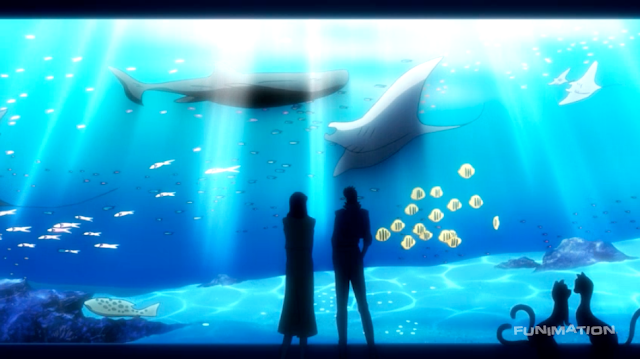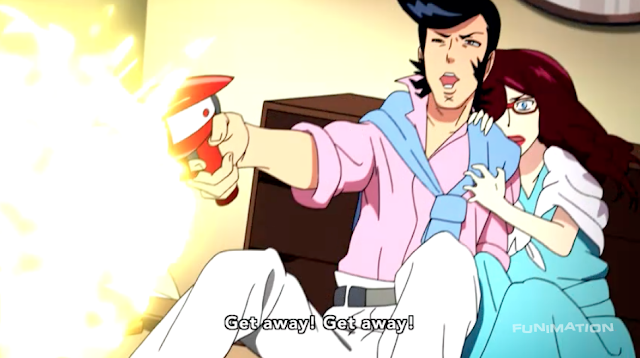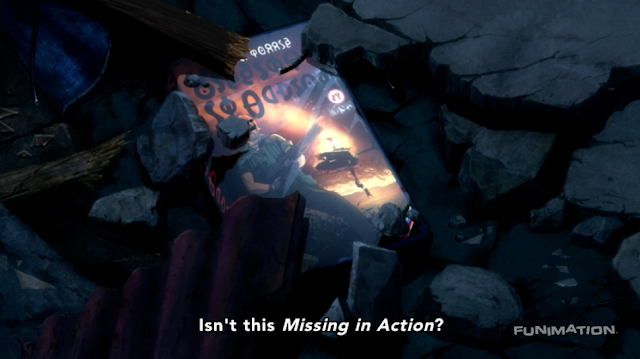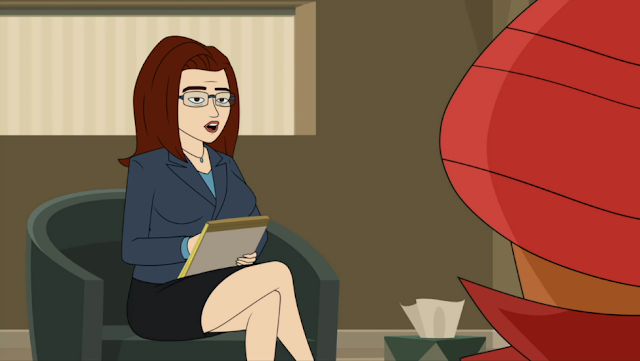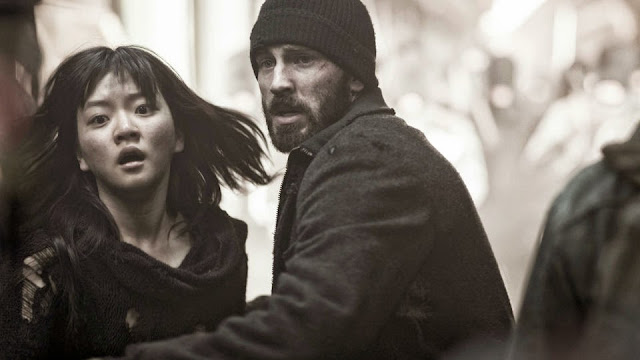The last time South Park was on the air, Trey Parker and Matt Stone put together perhaps my favorite South Park episode in years, "The Hobbit." Like many latter-day South Park storylines, "The Hobbit" lampooned a reality TV star whose show will no longer be relevant a year after you first watch South Park mock it--in this case, Kim Kardashian--but then the episode concluded on an unusually devastating note and critiqued the pressures placed on girls to fit certain beauty standards, without turning all Diff'rent Strokes preachy on us during its critique. For its 18th-season premiere, "Go Fund Yourself," South Park critiques another issue, and it's been a huge one in the Native American community for over a year now: Dan Snyder's stubborn refusal to change the racist and outdated name of the NFL team he owns, the Washington Redskins, which resulted in Native American groups starting a "Change the Name" movement.
Throw in a bunch of hilarious gags about the evilness of Snyder's fellow NFL team owners and the recent ineptitude of NFL commissioner Roger Goodell in how he's handled Ray Rice's domestic violence incident--we have South Park's amazingly fast turnaround to thank for those gags about Goodell--and you've got a solid season premiere that's the cathartic laugh we needed after months of constantly being subjected to appalling examples of how much of an evil organization the NFL is, from the head injury scandals to its hypocrisy regarding women's issues. "Go Fund Yourself," which has Cartman, Stan, Kyle and Kenny launching a startup where they make money doing absolutely nothing, also contains some jabs at the dumbest aspects of Silicon Valley culture. Those aspects are always worthy of a skewering because I'm currently stuck living in Silicon Valley, and I despise all things having to do with Silicon Valley culture. It's nice when latter-day South Park goes after subjects that aren't reality TV for a change.
But what really bolsters "Go Fund Yourself" is all the satirical material about the NFL (Snyder enters the picture when he demands that Cartman and his friends stop calling their startup the Washington Redskins). The episode's portrayal of Goodell as a malfunctioning robot is laugh-out-loud funny and perfect, especially in a week when ESPN punishes Bill Simmons for speaking his mind about Goodell's ineptitude and bizarrely gives the Grantland editor-in-chief a suspension that's longer than the one the annoying Stephen A. Smith received for blaming domestic violence victims for provoking their attackers. ESPN's tongue is so far up the NFL's ass it can report to you on SportsCenter what the NFL had for lunch.
***
There's only one episode of Space Dandy left, and at this late point in the game, all we know about the past of Dandy--this doltish hunter of aliens who knows as much as we do about his origins--is that his body was infused with an enormous amount of a highly coveted element called pyonium (also known as "the God particle," it's the same element that once caused QT to increase in size when Dr. Gel's ship accidentally blasted him with it); he's a middle school dropout; he used to date a female heart-in-a-transparent-box who hails from the fourth dimension; and the pyonium enables him to cross dimensions and remember every single one of them, including dimensions where he died. In "Dandy's Day in Court, Baby," we now find out he has no DNA, which confirms a theory I've had since "A World with No Sadness, Baby": Dandy isn't human, baby.
I think Dandy's either the escaped result of an experiment to construct a person out of pyonium or a god who developed amnesia, much like Will Smith in Hancock. Since then, he's been wandering space without any cash in a clunker of a ship for a long-ass time, barely aware of his special pyonium-related power, which the Gogol Empire wants for its own nefarious purposes. Like I've said before about any theory I've had regarding any mystery on Space Dandy, I could be wrong either way, and we'll see how wrong I'll probably be in the final episode of Space Dandy's way-too-brief run.
In the meantime, "Dandy's Day in Court, Baby" is an interesting case of a bottle episode of an animated show that's clearly a bottle episode--BONES Inc. reportedly went all out with the animation for the finale and needed to rush out an episode that's not as expensive--but instead of putting together a clip show like Space Dandy general director Shinichiro Watanabe and Manglobe once did for Samurai Champloo, BONES chose to set most of the episode inside a courtroom to cut costs. The episode actually works despite its downsized scope. For one thing, "Dandy's Day in Court, Baby" isn't recycling old material like those superfluous clip shows do. It's 100 percent new material, including the flashbacks to the crime scene where Dandy inadvertently became a murder suspect, and I'll take a courtroom trial with completely original content over a clip show any day. Plus the whodunit that "Dandy's Day in Court, Baby" writer Dai Sato came up with is simply diverting and full of what the NBC announcer who used to record all its promos (before Dorian Harewood's current stint as the voice of the network) would intone were "those Law & Order twists."
"Dandy's Day in Court, Baby" is more of an homage to the courtroom drama genre than a parody. For the first half, it's played completely straight to trick us into thinking a sad, remorseful-looking and mute Dandy really did kill an alien named Guy Reginald, a rare Lumetian (his race is named after the late director of 12 Angry Men and The Verdict), right in front of Reginald's hot wife Rose, a waitress at Dandy's favorite hangout Boobies (both Reginald and Rose are named after the writer behind 12 Angry Men, Reginald Rose). Instead of aping the original Law & Order, which I don't think is even popular in Japan (and if it were popular over there, Sato would have been aware that Law & Order never spent as much time in the jury room as "Dandy's Day in Court, Baby" does), the episode has more of an Ace Attorney vibe. Ace Attorney is a popular Japanese series of video games where the player gets to be heroic lawyer Phoenix Wright and make legal decisions instead of shooting at zombies or enemy soldiers. I knew all those hours of watching X-Play on G4 despite not being a gamer at all wouldn't go to waste someday.
In the second half of "Dandy's Day in Court, Baby," things get nutty, and the case goes from appearing to be a noirish crime of passion to turning out to be an absurd foofaraw involving a kid who was angry at his best friend for blocking him on Chwitter, Space Dandy's Twitter knockoff; a runaway baseball that contains a massive amount of pyonium like Dandy's body does; Lumetian pro wrestlers' secret identities; and Reginald's sleep apnea, which fooled his wife and the coroners--the dumbest coroners in the galaxy--into thinking Reginald was dead. Dandy is exonerated, and in the episode's best gag, the judges learn why he was being tight-lipped and reserved all through the trial. For a while, I thought the reason why Dandy was immobile was because he skipped the trial to hide from the court and replaced himself with a realistic-looking rubber decoy, but it turns out that he was actually asleep in the courtroom the whole time.
Then things turn serious again in the episode's great cliffhanger ending. Before "Dandy's Day in Court, Baby," Dandy never once got face-to-face with the Gogol Empire--every time Dr. Gel would come close to capturing Dandy, the alien hunter would be unaware of the presence of Dr. Gel's ship and then Gel's ship would immediately get blown up before Gel could get his mitts on Dandy--but now Dandy and the empire finally get to see each other when the empire's troops surround Dandy outside the courthouse. The conclusion of "Dandy's Day in Court, Baby" also marks the first time that the "To be continued" graphic at the end of many Space Dandy episodes isn't a joke.
Whether Dandy turns out to be a god or the God (or neither), I don't want Space Dandy to end because it's shown so much creativity in its brief run. An extra season of a few more special guest animators bringing their idiosyncratic flair to Dandy's universe(s) would have been nice. It's funny how I initially thought Space Dandy was going to be Shinichiro Watanabe's first artistic failure and just another lewd sci-fi comedy. Instead, it's turned into something better and unexpected: an anthology-like show that captures the adventurous and exploratory spirit of both the original Star Trek and The Hitchhiker's Guide to the Galaxy--and more effectively than the last time Star Trek hit the screen. Now that's a feat as impressive as anything pyonium can do.















